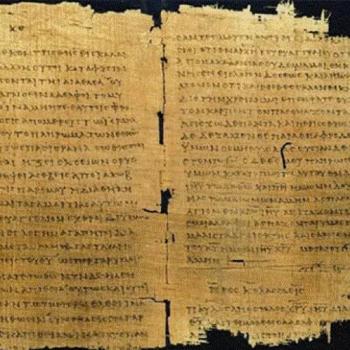I hate learning patience. The only way to learn it is to be required to have it under uncomfortable circumstances. Who among us has not thought, "I could really be patient if I just didn't have all these problems?" It would be so easy to be patient if there were more money coming in, if it weren't so hot, if the car didn't have all those little niggling problems, if all the annoying people weren't so, well, annoying. It would be so much easier—or so it seems—if we didn't keep making mistakes so often. When we're perfect and everything else is too, patience will be no problem at all.
People who've known me in the past might be surprised to hear me say these things, because I have been told often that I am very patient. I'm glad it looks that way. But it doesn't necessarily feel like that's what's going on inside.
"Patient" is the very first quality God ascribes to love (1 Cor. 13:4). Love is patient even before it is kind. How often do we reflect on that? Love waits and waits and waits, and doesn't give up during the waiting. It even waits past all human understanding, as God waited—and waits now—to confer triumph on His son Jesus, and gather all His people to Himself. This theme is alluded to in 2 Peter 3:8-9 (emphasis added, all citations NIV):
But do not forget this one thing, dear friends: With the Lord a day is like a thousand years, and a thousand years are like a day. The Lord is not slow in keeping his promise, as some understand slowness. Instead he is patient with you, not wanting anyone to perish, but everyone to come to repentance.
God's remarkable patience is the patience we are supposed to have. Think of Jesus, bound and spat on as he faced Pontius Pilate and the religious authorities of Judea. He was patient and kind; he did not envy or boast; he was not proud; he did not dishonor others; he was not self-seeking or easily angered (1 Cor. 13:4-5); and even on the cross, he did not keep a record of wrongs (Lk. 23:40-43). He could not face his torture and death with complete equanimity—he felt fear and anguish (Lk. 22:39-44)—but he faced the whole process with patience.
Humility is at the heart of patience, as 1 Corinthians 13 implies. I think we often have to learn patience as much for the humility it develops in us as for the patience itself. Cultivating humility certainly makes patience a lot easier. In my younger years, I was much more impatient (even if I didn't show it outwardly) with situations like old people being in line in front of me at the grocery store, and needing price checks on items they had thought were on sale. "Good grief," I would think, while outwardly looking pleasant and undisturbed, "does it really matter if the stupid cans of tuna are four for $4.00? If they're $1.79 each, why not just pay for four anyway? And why do I always get stuck behind the geriatric bargain-hunters?"
Now it seems easier to be genuinely patient with them—to think, "Well, they come from a generation that was wiser about money than mine tends to be. And hey, it's great that they can still get out and move around in the world. I hope I can do my own grocery shopping at that age."
This is a change—an increase of patience—that had to be worked in me by the Spirit of God. I suspect most of us have similar stories. This summer, the summer of 2012, has been a crash course in patience, with the drought, the heat, the humidity, the bugs that come with heat and humidity, and the mounting problems of family members, friends, and society at large. There are days when I think American politics can't possibly get more absurd, and then the next day proves me wrong. Family members have health problems; air conditioning poops out; life seems to be an unending series of annoyances and problems.
But this summer, I've been able to be more naturally thankful than I think I ever have before. I can't think of many summers that were worse, but I know I've never been so thankful for what God has done for me throughout a summer (or a year), even if, some days, His big blessing is just keeping the power on so the fans will work.
Many of us can manage to be something between adequate and magnificent when a great, earth-shaking crisis erupts. It's often much harder to endure, over time, daily annoyances that don't go away, even though we still have to keep up all the ordinary obligations of life. I think of patience as a muscle, which requires development and strengthening through regular exercise. It's probably better for us to develop it while staying in our routines than to have to learn it solely through catastrophe.
Across America, and I believe in other parts of the world as well, God is cultivating some powerfully patient people. We see alarming things happening: things that make us worry about our governments, our societies, our families, and our human future. But if patience is justified by anything, it is the dependability of God the Father. Patience is relying on Him, rather than running out ahead with precipitate action.





